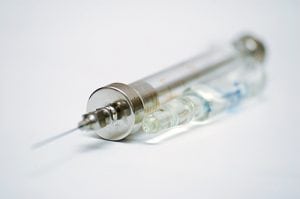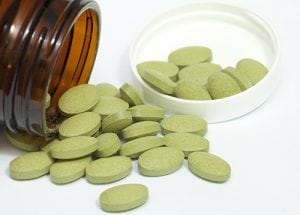
Discover if you are a candidate for opiate detox.
Prescription drug abuse continues to be a rampant problem in the U.S. today, and opiate detox is needed for many patients. As more people become addicted to prescription drugs like oxycodone and hydrocodone, doctors struggle to find ways to help patients successfully overcome their life-threatening dependencies.
- Rapid opiate detoxification has proven to be one of the most successful treatment options available to people addicted to opioids
- Before you undergo this procedure, you should learn more about it to determine if you are a viable candidate for it
CONTACT US TODAY
What is Rapid Detoxification?
Rapid opiate detoxification is a medical procedure that is designed specifically for people addicted to prescription medications like hydrocodone, oxycodone, and suboxone. It shortens the detox process by blocking receptors in people’s brains and also protects patients from discomfort and pain. When carried out successfully, the detoxification will reduce or entirely eliminate patients’ drug cravings.
The rapid opiate detoxification procedure was invented in 1988 and continues to an effective way to treat opioid dependency. It is only administered in medical centers instead of doctors’ offices, or rehabilitation facilities. It also requires that people set aside a full two to three days for the detoxification treatments.
What is the Procedure for Rapid Detoxification?
Two to three days are required to carry out the entire rapid opiate detoxification successfully. The process starts with patients undergoing physical examinations to determine if they are healthy enough to be put under sedation.
The examination also allows doctors to determine how well patients will tolerate the abrupt withdrawal of drugs from their systems. People who have life-threatening illnesses or who are deemed too physically fragile may be disqualified from undergoing the rapid detox procedure.
As a precaution, doctors will only administer this treatment in a fully equipped surgical center. This safeguard allows patients to be constantly monitored by medical staff. It also allows nurses and doctors to intervene quickly if patients experience any medical complications during or after the procedure.
Once they are admitted and the procedure begins, patients can expect to be sedated for 30 to 90 minutes. This brief sedation allows doctors to administer a medication called naloxone, which is an opioid antagonist that helps wean patients from medications like hydrocodone and oxycodone.
It also eliminates patients’ physical dependencies for these substances. When they wake up from sedation, patients should have no cravings for the drugs to which they were once addicted.
Nonetheless, they are required to stay overnight in the surgical center for observation, and then spend a couple of days recovering at a residential recovery facility, before they are allowed to be discharged and return home. Their stay permits their physicians and nurses to monitor them during the procedure itself as well as administer any post-procedure care required to make their recoveries successful.
Rapid Opiate Detoxification Precautions
As with any medical procedure, patients should take several precautions before undergoing rapid opiate detoxification. First, they should ensure that the center at which they will receive this treatment is fully accredited and that the staff is trained in the procedure.
Second, they should make sure that they have a few days to devote to this process between consultation, the procedure itself, and recovery at the retreat center. They should take time off from work or school if needed.
Third, they should anticipate undergoing several pre-procedural examinations including a full physical evaluation to determine if they are healthy enough for the opiate detox. The evaluations will also determine how well they may react to the medications used during the procedure.
Finally, they should anticipate some post-procedural side effects that can range from physical pain to emotional distress. These side effects are common but treatable. They are also the primary reasons for why patients must stay at the center until they are ready to be sent home. Doctors and nurses can intervene and give the proper care for these aftercare symptoms as needed.
Other Information about Rapid Opiate Detoxification
Along with keeping these important precautions in mind, you would also do well to remember some other important information about rapid detoxification. The most important piece of information that you should realize involves the expense of the procedure.
Rapid opiate detox is not typically covered by insurance, and it tends to be significantly more expensive than traditional drug rehabilitation treatment options. However, because it is not covered by insurers, it guarantees you a higher level of confidentiality and privacy.
You should also understand that your eligibility for the treatment depends greatly on a number of different factors, notwithstanding your physical health. If you suffer from life-threatening illnesses like high blood pressure or heart failure, you may not be allowed to go through the rapid detox process.
Likewise, you will not be put under general anesthesia but will rather be briefly sedated during opiate detox. This light sedation will last between a half hour to an hour and a half. You will be awake during the remainder of the two to three-day process so that your medical team can monitor you and respond to your specific physical and emotional needs.
Finally, as effective as this process is for detoxing your body of the drugs to which you are addicted, it could be less effective if you do not follow up with post-procedural care. You should make arrangements for additional recovery support such as counseling, support meetings, AA, or other recovery resources that are available in your community.
These resources will help you relearn behaviors needed to avoid drug use in the future. They also provide you with support you need in case you feel tempted to abuse prescription medications again.
Dependency on prescription drugs like oxycodone and hydrocodone continues to be a serious and devastating public health problem. When traditional drug rehab services are not an option or you want a faster and more effective way to recover from your addiction, you may be eligible to undergo rapid opiate detoxification. This detox procedure shortens the withdrawal process and helps your body avoid the discomfort and cravings that drug addicts experience when recovering from their dependencies




